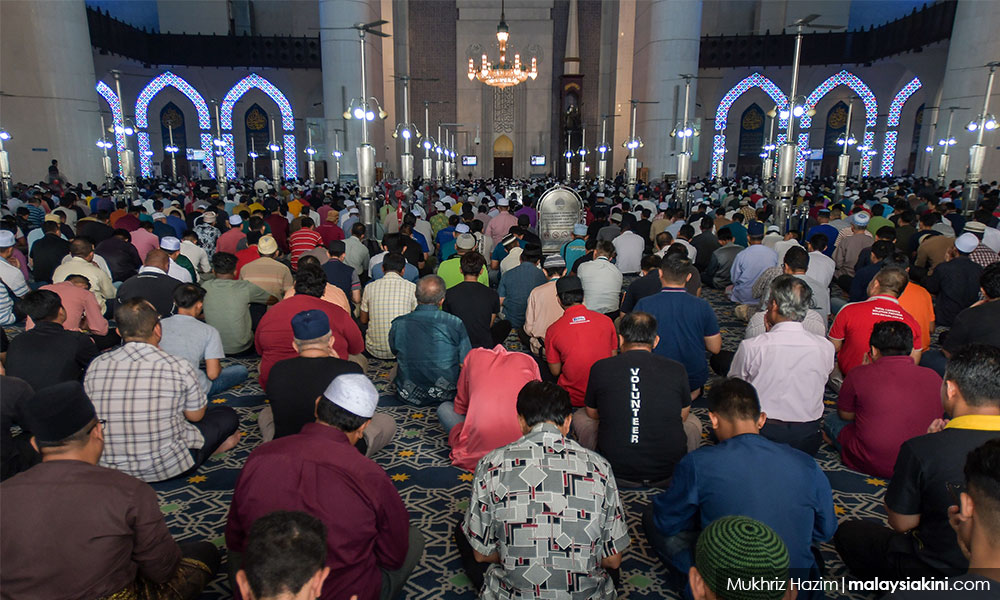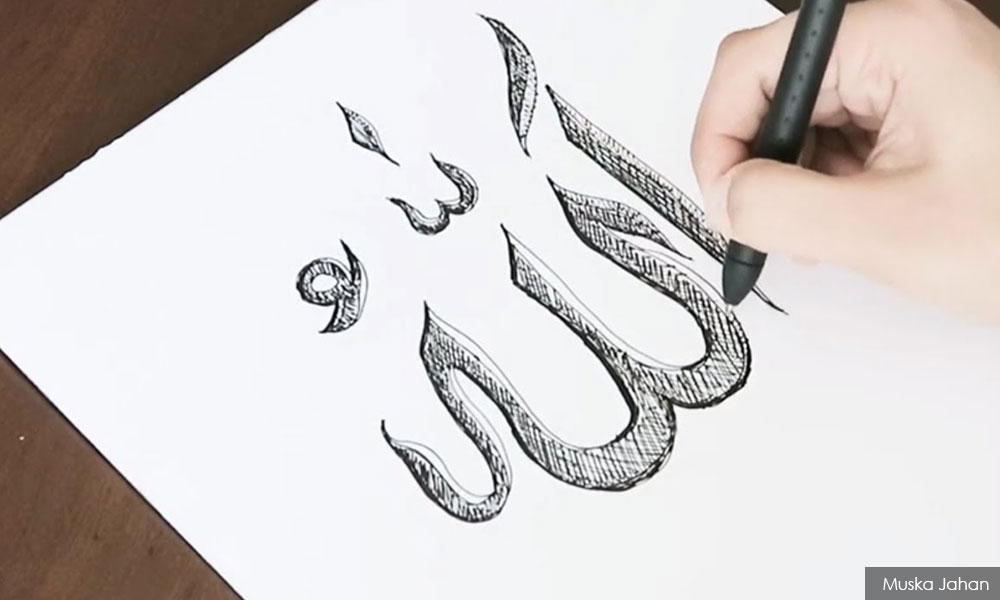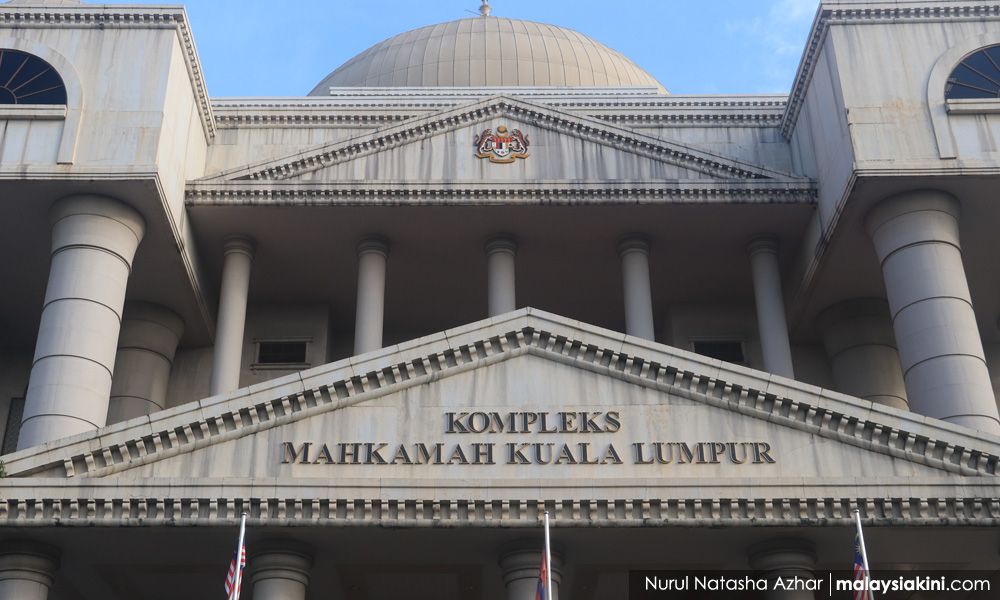One of the most realistic scenes of a couple fighting I’ve ever watched was in the movie The Break-Up - in my humble opinion, one of the best relationship movies of all time. The fight starts off as being about doing the dishes.
It becomes obvious pretty soon though, that the fight isn’t really about doing the dishes. One might hazard to say that the fight was really about, say, deep-seated issues in the relationship.
That’s how I tend to think about many of the things Malaysian leaders like to fight about, including the most recent return to the issue of the use of the word “Allah”.
I’ve followed this issue and issues very much like it over very many years now, and if I had to hazard an opinion, I’d say it has little to do with religion, and even less to do with linguistics.
I’d say it has to do with how we treat religious - and racial - issues in this country. I’d say it’s connected to how our political system ‘rewards’ bickering and hatemongering.
I’m not the right person to add to the debate about who should be allowed to use the word “Allah” where and when.

Instead, I thought to share some observations about how this polemic tends to play out, why it tends to play out that way, and what strategies might be available to forge new ways of dealing with such conflict.
Currently, the most powerful, influential, and amplified leaders in Malaysia tend to be politicians. Politicians invariably work backwards from one simple goal: winning elections.
If you can’t win elections by getting people to like you, you try to win elections by getting people to hate your opponent. In many ways, this is the most ‘time honoured’ of ‘democratic’ strategies.
True enough, right on cue, as soon as it was announced that the government had withdrawn its appeal in the Jill Ireland case, all the usual suspects started jumping up and down, banging their fists on the table, accusing Prime Minister Anwar Ibrahim’s government of being weak, failing to defend the rights of Muslims, and so on and so on.
Politically expedient
A few might be naive to believe that this is because they truly feel passionate about the issue, with all its complexities and technical subtleties. The rest are more likely to believe that these leaders do so because it is politically expedient to do so.

By politically expedient, I simply mean that those who are protesting the loudest are those who feel they have something to gain by appearing as the leaders and lightning rods of anger and discontent.
Most of these are politicians, who believe that by making people angry at the government, they will get more votes in the next election.
History teaches us that this prospect is a very, very strong motivator. Almost as strong a motivator as money - though to be fair, many simply treat it as a stepping stone to money.
It is a strong enough motivator to make many disregard what is truly in the national interest, in pursuit of political and personal interests.
If our leaders were truly focused on the national interest and what is best for the rakyat, they would simply find a way to get all stakeholders to sit down at a table, and calmly find a compromise solution that is at least reasonably acceptable to the majority of those involved.
There are some problems that can be truly intractable indeed. To return to the couples analogy, tough questions might be things like whether or not children are wanted, what religion to practise, and so on. These can be dealbreakers.
Other questions like who should do the dishes are generally considered ones where a negotiated compromise should not be so hard to reach. The movie Forget Paris has an amusing alternative take on this question.
So is the issue regarding the use of ‘Allah’ more one that is a dealbreaker, or one that is negotiable?
I personally believe that those trying to persuade you of the former have a vested interest in making it appear like a dealbreaker. I believe that if the right Malaysians sat down at a table, in the right spirit and context, some negotiated compromise is eminently achievable.
Legal wrangle
On this note, it is worth noting that very soon after the government withdrew its appeal, the church Sidang Injil Borneo (SIB) also withdrew its own legal action on a similar matter.
SIB filed a notice of discontinuance at the KL High Court seven days after the government withdrew their appeal, ending a 14-year legal battle fighting for their right to use the word ‘Allah’.

There are various technicalities to the various cases related to this issue. Reading statements by Home Minister Saifuddin Nasution Ismail and commentary by former Bar President Salim Bashir leaves me a little confused, if I’m being perfectly honest.
I’m not a very knowledgeable guy, but one endeavours to know at least enough to know what one does not know. And frankly, I do not know all the ins and outs of all the very many various legal actions in the many different cases related to this issue.
It looks a little like it’d take even a lawyer weeks to really get to know every angle.
As written above though, I generally feel it’s never really about all the technical ins and outs. I feel the bigger question is how our leaders choose to manage this issue.
It is slightly curious, from a strategic point of view if nothing else, why the government would choose to withdraw the appeal at this stage, so close to the upcoming state elections. It is almost impossible to imagine that it will improve the ruling coalition’s prospects in the states of Kedah, Terengganu, and Kelantan.
The government could have let the appeal continue, and been prepared to accept whatever decision was made by an independent judiciary, thus - to all but the hardcore - clearing them of any culpability in the result.
Perhaps this was something done to appease the East Malaysian members of the ruling coalition. Or perhaps there is a deeper, more complex game afoot. This writer unfortunately doesn’t have any extra insight as to what game may or may not be playing out behind closed doors.
I will say that my gut tells me that we should indeed allow Sabah and Sarawak to treat matters like this differently than the way we do on the peninsula. Theirs is a culture, heritage, and context that is different from those of us here in West Malaysia and we should find ways for law and governance to respect and reflect that.
In the meantime, as I’ve written many times before, perhaps the best we can do as normal Malaysians is to try not to fall into the trap that some of these politicians and leaders want us to - the trap of being forever embroiled in a polarising, toxic, and ultimately artificial conflict, full of sound and fury, signifying nothing.
Let us instead see this issue for what it truly is, and let it not deter us from continuing to forge better interracial and interfaith relationships, built on true mutual understanding and respect. - Mkini
NATHANIEL TAN is a strategic communications consultant who works with Projek #BangsaMalaysia. He can be reached at nat@engage.my.
The views expressed here are those of the author/contributor and do not necessarily represent the views of MMKtT.



No comments:
Post a Comment
Note: Only a member of this blog may post a comment.